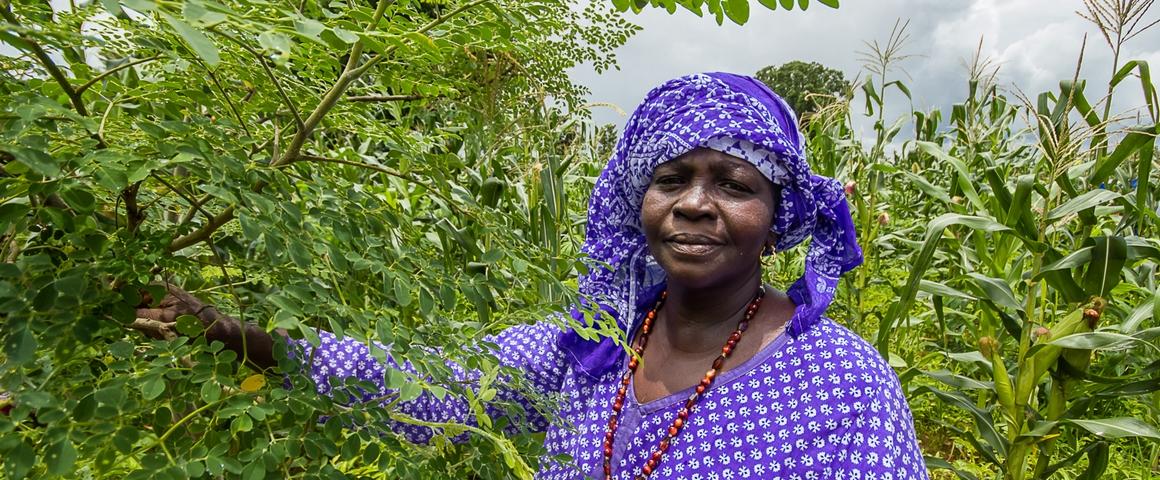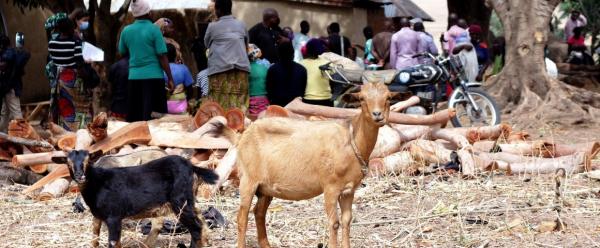Results & impact 28 October 2025
- Home
- CIRAD news
- News
- Integrating gender considerations into research content
Acknowledging gender makes science fairer and more relevant

In Kenioto, Senegal, this farmer intercrops maize with moringa, a fertilizer tree © R. Belmin, CIRAD
The Gender-SMART project sowed the seeds of inclusion, and there is no going back now. The project’s nine partners, coordinated by CIRAD, had four years to make workplace and gender equality a major priority at their organization. This vital, ambitious programme comprised two components: promotion of gender equality within organizations, and inclusion of gender issues in their scientific and partnership strategies.
Gender-SMART was completed in December 2022. In terms of the impact on science, CIRAD’s projects are now in a position to assess their gender sensitivity using a bespoke tool. These assessments give rise to methods and recommendations. Rather than just addressing gender issues, the aim is for each CIRAD project to at least serve to document gender inequality, at best to transform gender relations and ensure greater equality.
A community of practice to boost the inclusion of gender in research
In 2020, CIRAD set up a community of practice on gender in research content. By the end of 2022, it associated 70 researchers, both men and women, from every field. Gender balance, inclusion and voluntary participation are central to its activities.
The community’s first task was to build shared fundamental knowledge and expertise, to include gender issues in CIRAD’s work. Emmanuelle Bouquet and Jean-Michel Sourisseau, an economist and socioeconomist respectively at CIRAD, coordinated the working group. “We set out to list the obstacles to and levers for taking greater account of gender issues in our work. The challenges differ from one research activity to another, for instance between scientific publications and field workshops with partners. Gender issues are sometimes irrelevant, and sometimes inescapable. What is important is that we think about them.”
The researchers involved have since built on this foundation to develop a tool that positions research projects on a gender sensitivity gradient.
A collective ambition collective: to switch from gender-blind approaches to a sensitive, even transformative approach
The approach centres on two components. The first is scientific aspects: should research topics necessarily include gender issues? If so, how should those issues be formulated and included in data analysis and the dissemination of results? The second component focuses on governance aspects, by means of indicators such as gender balance within research teams or equal pay and working conditions for the men and women working on the project.
Those questions serve to place projects along a gradient, ranging from gender-blind to gender-sensitive. The tool has already been tested on eleven case studies, and has highlighted the range of different ways in which CIRAD’s projects take account of gender. This allows project leaders to identify the areas in which there is room for improvement and share good practices.
In addition to the tool, Emmanuelle Bouquet and Jean-Michel Sourisseau stress the importance of having a group that is open-minded about such questions. “The tool has its methodological limitations and sometimes produces imprecise results. While it is useful for estimating a project’s gender-sensitivity, it is the subsequent discussions and support within the community of practice that generate progress.”
“The aim is for every project to be open to a debate about inclusion”, Emmanuelle Bouquet and Jean-Michel Sourisseau say. “This is vital to ensure that science is not just fair, but effective. For CIRAD, which works in rural parts of the tropics and the Mediterranean, addressing gender inequality is a way of making our results more relevant.”



























